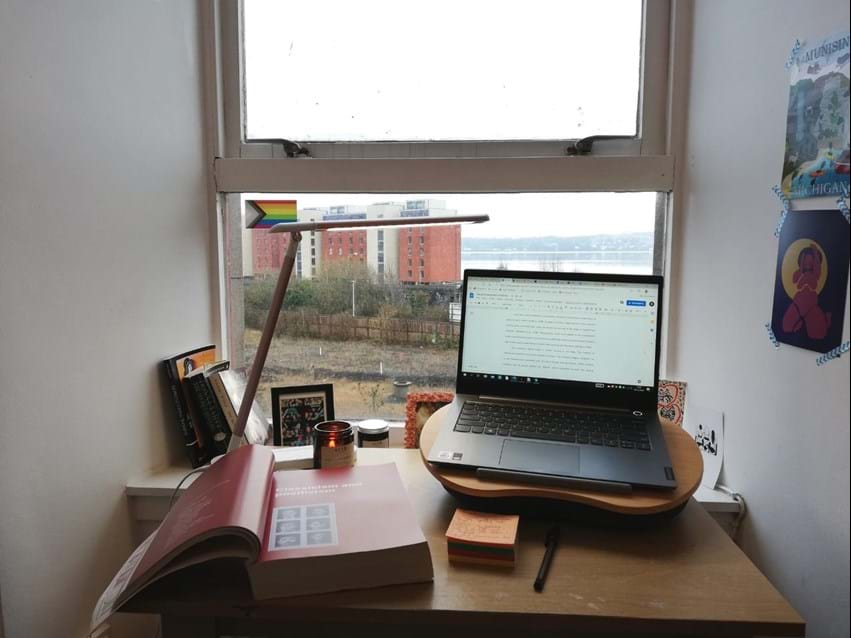Pause carousel
Play carousel

Barbara Szpilka (pictured) is a First Year Criminology student at Abertay, and has written this blog post sharing her tips on how to study from home.
Being stuck at home is definitely not fun.
Being stuck at home for 14 days because you have to quarantine is even less fun - especially when you have deadlines coming up.
Recently, I was presented with this sad yet true reality. Because I had to travel to Poland urgently, upon my arrival back in Scotland I had to quarantine for 14 days. Was I excited about it? No way.
But I knew that if so many people before me had managed to go through the same thing (and survive), I could do it too.
The first question that popped into my head when the door of my flat closed was: how am I even going to study efficiently here? Now, this is something a lot of students are struggling with at the moment. Personally, I’m definitely someone who prefers to get their work done in the library, but since this wasn’t an option for me, I had to get a bit more creative. That way, I came up with a few tricks to make studying at home more bearable.

The first rule: set up a study space. A bit obvious but it’s literally the initial step to get your work done. While studying in bed may be tempting, you can easily end up just dozing off. Trust me, been there, done that. For this reason, you should try to separate your “relaxation” space and “work” space. Your bed should be the former and your desk or table – the latter. Decluttering the work space also helps a lot – whatever may distract you, should be out of the sight. That way, when you actually sit up and get your hands on books and notes, you will be more likely to stay motivated and alert.
The second rule: remain focused. If you’re like me and you get distracted literally all the time, the pomodoro technique could be your lifesaver. To use this technique, you have to break down your work into four 25-minute intervals separated by 5-minute breaks, during which you can grab a coffee, stand up or do a breathing exercise. Every four intervals, you take a longer break (let’s say half an hour) and during this time your brain will do its magic and assimilate new information. I definitely recommend getting a pomodoro timer app so you wouldn’t be tempted to check your phone all the time, but you can also use the browser version.
And the third rule: manage heavy workloads. Again, this may sound obvious, but you will do yourself a great favour if you create a timetable combined with a list of things you have to do every day. The key is to stop thinking that the more you do, the better. Even if you complete only a few small tasks a day, that’s already something to be proud of. Just make sure you consistently follow your timetable. To give you an example, when I’m assigned an essay, I divide the number of words I have to write by the number of days till the deadline. That way, I usually end up with about 100-150 words a day. This number is definitely less threatening and the task itself seems small and manageable.
While I can’t guarantee that all my tips will work for you, the most important thing is trying different methods and figuring out which ones help you study at home efficiently. This situation is definitely not ideal, but it will pass at some point.
You just have to stay strong and if you feel like you need to take a break, there is nothing wrong with treating yourself to a short nap or a cuppa. You’re currently surviving the pandemic, that’s already a lot to do.